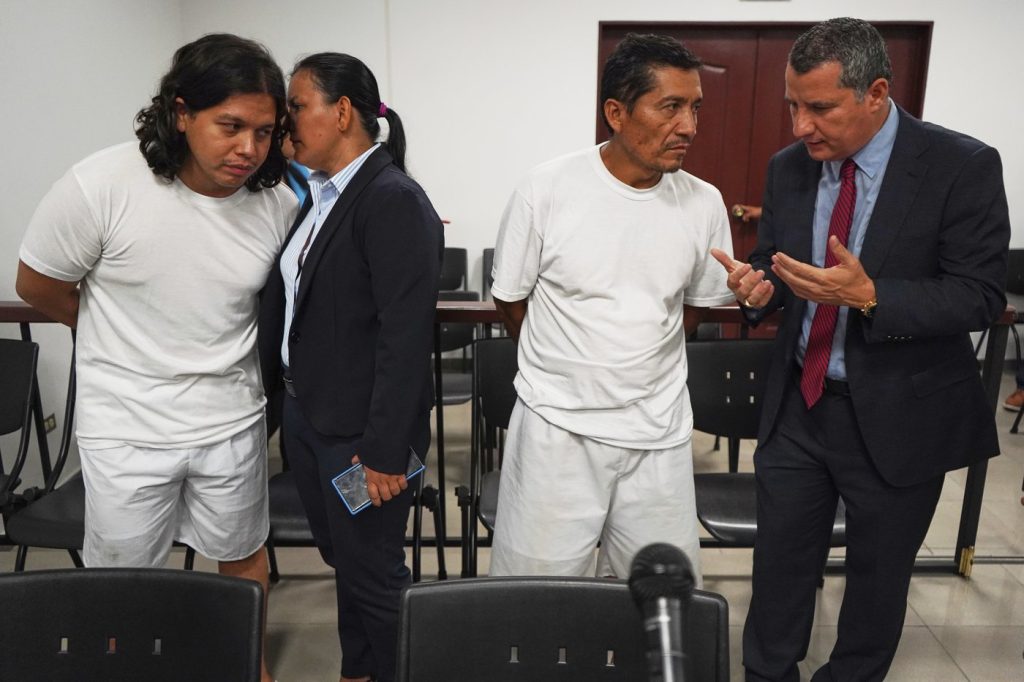SAN SALVADOR, El Salvador (AP) – The arrest of Ruth Eleonora López, an anticorruption lawyer associated with a prominent human rights organization, is the latest instance illustrating how the extraordinary powers granted to President Nayib Bukele to combat gang violence are being misapplied to a variety of unrelated alleged crimes. López was taken into custody at her residence on May 18, accused of assisting a former employer facing embezzlement charges. Despite her denial of these allegations, over two weeks have passed without her being formally charged or presented before a judge.
El Salvador’s constitution mandates that arrested individuals must be brought before a judge within 72 hours. However, criminal defense attorneys report that numerous cases—including those involving drunk driving, theft, and sexual assault—are now being delayed, with many defendants not appearing before a judge until up to 15 days post-arrest. This lag has become permissible due to the state of emergency that Congress enacted in March 2022 following a gang massacre, which included the suspension of fundamental rights such as prompt judicial review and the right to legal counsel.
Since the implementation of these extraordinary measures, over 86,000 individuals have been detained for alleged gang affiliations, with a staggering 90% still awaiting trial. Moreover, many individuals who are not connected to gang activity are also caught in the same lengthy detention process. Legal experts have criticized these expansions as abusive, asserting that the suspension of constitutional rights has effectively legalized the delay of judicial proceedings for a broader array of criminal charges.
In a recent address to the nation regarding the first year of his new term, Bukele dismissed criticisms of his authoritarian governance style. “I don’t care that they call me dictator,” he stated, asserting that he would rather be labeled a dictator than allow violence to persist in the streets of El Salvador. He emphasized that his focus is on achieving tangible results rather than engaging in semantic debates about governance. Bukele further justified his actions by claiming that combating corruption necessitated the suppression of opposition voices, remarking, “How are we going to battle corruption if all the opposition has guaranteed impunity?”
Human rights organizations both within El Salvador and internationally, such as Cristosal and the Inter-American Commission on Human Rights, have urged for the lifting of the state of emergency, arguing that the original rationale for such measures has dissipated and urging for a restoration of rights. Nonetheless, legal practitioners assert that the extended state of emergency has become normalized, with the exceptional regulations being increasingly misapplied across various crimes.
Oswaldo Feusier, a lawyer and academic, commented, “They’ve generalized it,” pointing out that judges are routinely applying these exceptional conditions to a wide range of offenses. This extension of the state of emergency has also influenced recent government actions. For instance, Bukele called for the detention of leaders from bus companies that allegedly ignored his request for providing free transportation during the closure of a major highway. Despite the arrests occurring from May 5 to May 7, the individuals were not formally charged until May 19.
On May 12, two individuals protesting an eviction outside Bukele’s home were arrested for alleged public disorder. Their cases did not go before a judge until May 27. Bukele even used this protest to advocate for the passage of a new foreign agents law, stipulating that NGOs receiving international funds must register and could be taxed up to 30%. Legal experts noted that the state of emergency’s provisions are being increasingly applied to cases that have no connection to gang violence, contributing to judicial backlog.
Ruth López’s alleged impropriety ties back to her previous role as an adviser to Eugenio Chicas, the former president of the Supreme Electoral Tribunal during the administration of President Salvador Sánchez Cerén (2014-2019). Chicas, who transitioned from the court to the Cabinet and subsequently served in Congress, was convicted in a civil case for illicit enrichment. He is currently facing criminal charges related to the same issue.
Cristosal has highlighted López’s dedication to human rights and anti-corruption efforts, emphasizing that her case is not isolated but reflects a pattern of criminalization directed against critical voices within the country. Amidst rising concerns about civil liberties in El Salvador, the implications of Bukele's administration's approach to governance continue to stir significant debate.











